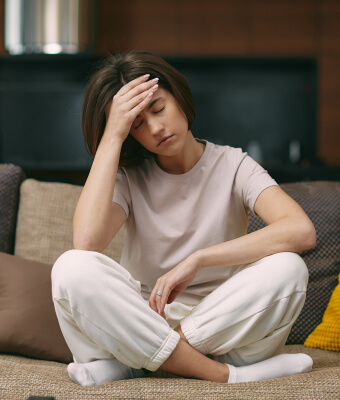Monkeypox cases have now touched close to 50,000 the world over.1 Should parents be concerned about the virus affecting their child? The data, at least in the US, suggests that parents should not be disproportionately concerned. In amongst the 11,000 plus cases in the country, fewer than 10 have been reported in children. The virus is not as contagious as SARS-CoV2 and only transmits via skin-to-skin contact.2
The emergency use authorization of the vaccine JYNNEOS has ensured that children (under the age of 18) have the option of obtaining post-exposure prophylaxis which can reduce the chances of developing infection or reduce the severity of the infection.2
Children under the age of five often develop hand, foot, and mouth disease, which results in skin lesions. Parents should not panic and imagine that the monkeypox virus has struck; they should visit a pediatrician at the earliest and get their kids checked.2 The WHO also points out that chickenpox and other viral infections which cause lesions are common at this age and should be considered first before suspecting monkeypox.3 Children with eczema and other skin conditions, immunocompromised children may be at increased risk of severe disease if they contract monkeypox.4
Symptoms of monkeypox in children
Rashes on the skin (around eyes, mouth, genitalia, or anus), which begin as maculopapular lesions and then progresses to vesicles, pustules and scabs, is the defining symptom of monkeypox. As mentioned earlier, these rashes may resemble those seen in other skin diseases such as chickenpox, herpes, allergic skin rashes and hand, foot, and mouth disease. Other symptoms including fever, lymphadenopathy, fatigue, and headache may or may not be present.4
What happens when a child has monkeypox?
In addition to treatment provided by the healthcare providers, the affected child should be closely monitored till they have recovered. A healthy parent or caregiver who is at a low risk of monkeypox may isolate with the child till recovery.3 Children with monkeypox above the age of two should wear a mask when interacting with a caregiver; the caregiver should do the same.4
Affected children should cover their skin lesions, encouraged to not scratch the lesions or touch their eyes, and avoid contact with other people and pets. Children should not return to school till a healthcare provider confirms that they are not contagious any further.4 The CDC recommends that isolation may end when the affected person no longer has fever, skin lesions have scabbed over entirely, and a fresh layer of skin has formed underneath.1
Can affected mothers continue to breastfeed their children?
If a mother is suspected to have monkeypox, they should immediately consult their healthcare provider who can assess the risk of transmitting monkeypox as well as the risk of withholding breastfeeding to the infant. Precautions may be taken while breastfeeding such as covering the lesions and wearing a mask while breastfeeding. It is not yet known whether the monkeypox virus can be transmitted via breastfeeding.3
Managing newly born infants exposed to the virus
Infants suspected to have been exposed to the monkeypox virus should undergo ea rly bathing and post-exposure prophylaxis. Vaccinia Immune Globulin could be considered, even though optimal strategy surrounding prophylaxis in newly born has not been defined yet.4
Affected infants should not have direct contact with their parents and breastfeeding in such cases should be delayed during the isolation period according to the American Academy of Pediatrics.4
References
- CDC. Monkeypox in the U.S. [Internet]. Centers for Disease Control and Prevention. 2022 [cited 2022 Aug 31]. Available from: https://www.cdc.gov/poxvirus/monkeypox/response/2022/world-map.html
- Monkeypox and Children: Should Parents be Concerned? [Internet]. Department of Pediatrics. 2022 [cited 2022 Aug 31]. Available from: https://www.pediatrics.columbia.edu/news/monkeypox-and-children-should-parents-be-concerned
- Monkeypox and Children: Should Parents be Concerned? [Internet]. Department of Pediatrics. 2022 [cited 2022 Aug 31]. Available from: https://www.pediatrics.columbia.edu/news/monkeypox-and-children-should-parents-be-concerned
- Monkeypox [Internet]. [cited 2022 Aug 31]. Available from: https://www.who.int/news-room/questions-and-answers/item/monkeypox.






